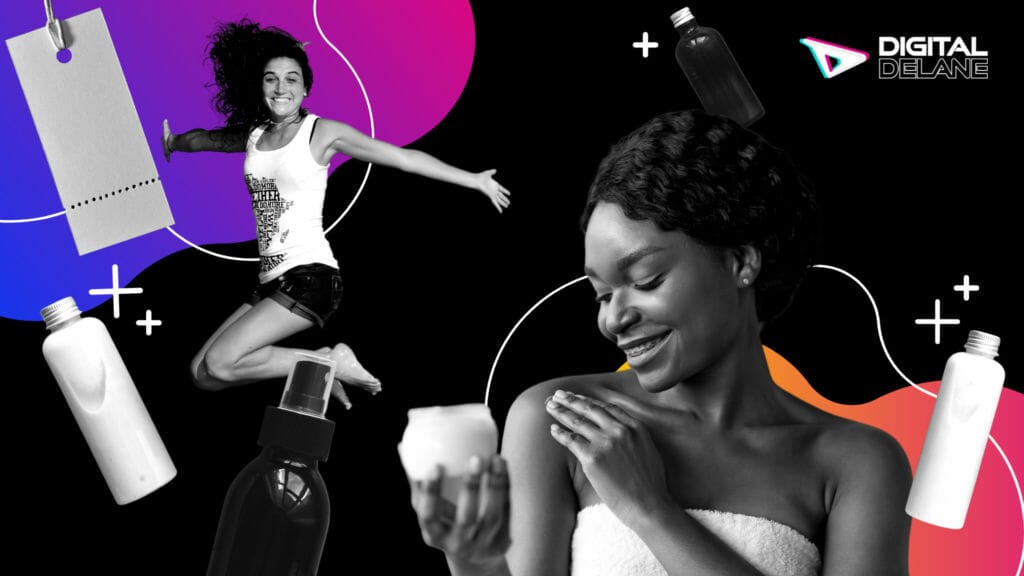what it takes to be a successful brand ambassador

Being a successful brand ambassador is not for anyone.
That’s because it requires you to be more than a “people” person. So showing up in a branded cap or T-shirt and smiling for hours won’t cut it.
That’s not to say radiating a welcoming warmth is not an essential part of it. It is.
It’s just that: brand ambassadorship comes with many roles, responsibilities, and performance expectations. The hiring company also puts a lot of faith in your marketing savvy, sales skills, online presence, networking capabilities, and more.
Are you wondering what it takes to become a successful brand ambassador? It’s best to understand what’s expected of you, first. The idea is to gauge whether your skills and personality traits match. You also need to know how the recruiting company defines or measures success. This post walks you through that, digging into some core qualities of a successful brand ambassador.
To ensure we’re on the same page, let’s define “brand ambassador.”
Who’s a Brand Ambassador?
A brand ambassador is a person who represents a brand and its offerings to a target audience.
The said representation could be in stores, online, or at special events. At times, you’ll be sending an email, tweeting, posting on social media, or blogging. Other times, you may also find yourself hosting special marketing events (with a team, of course).
Put in other words: an ambassador is a person (well, unless the company is leveraging fictional characters like Sherlock Holmes) who loves the brand, can commit to its success, and authentically communicate their passion about it to others.
Generally, ambassadors are hired by a company to i. be its advocate and ii. increase sales by executing the set marketing and communication strategies.
Unlike influencers in influencer marketing, brand ambassadors:
- Have a genuine interest in the brand
- Leverages the brand’s tone to communicate its messages
- Have an engaged following
- Work well for companies with an established customer base
- Go through training or a brand’s ambassadorial program to learn about the company’s ambassadorial guidelines
- Exclusively recommends the brand for at least some months
With the definition in mind, let’s explore what’s expected of them.
What’s Expected of a Brand Ambassador?
As seen from the definition above: Ambassadorship is more of brand advocacy than a hard sell.
The mission here is to espouse the brand’s merits through the agreed upon sales venues. So you’re more of a marketing engine than a salesperson: tasked to generate buzz around the brand. (Ultimately, though: the goal is to drive sales and increase the company’s bottom line.)
Some roles and responsibilities of a brand ambassador include:
1. Representing the brand alongside its services or products.
If done via a series of store visits, you may be in for some travel time depending on the brand’s distribution.
2. Attending event marketing programs.
You may be tasked to lead events and promotion programs designed to create awareness as well as boost interest in the company’s offerings.
3. Product demonstrations.
You’ll need to know the ins and outs of the products you represent to answer relevant questions on the fly.
4. Content creation.
You are expected to post about the brand on social channels, blog about it, drive email campaigns, and generally create content that’ll increase brand awareness.
5. Providing marketing and consumer insights.
You are expected to monitor customer feedback and preferences, deduce valuable insights from the feedback, as well as share them with the company. (Be sure to forward escalating complaints to the sales and marketing department.)
6. Building relationships.
Building and sustaining business relationships is a necessity. Be it with distributors or the local trade community. Here, you’re expected to have a plan to leverage the established customer base, market your endorsed products to them, and further broaden the brand’s reach.
7. Collaborating with sales and marketing teams.
Plan and implement strategies to drive sales.
8. Protecting the brand.
Turn on the charm whenever you spot a complaint about the brand and do your best to ease or rectify the situation.
9. Understanding the ins and outs of the brand.
That includes its personality, philosophy, concepts, and product or service portfolio.
That’s what’s expected of you, but how will the company measure your performance?
How Do Companies Measure the Success of a Brand Ambassador’s Campaign?
Generally, the company will track the success of your campaigns to determine how successful you’re at representing them. That means analyzing metrics, such as:
- Brand reach during the campaign
- The amount of content you have created during the campaign
- Total campaign-related activities on specified social channels
- Amount of content engagement with your content
- The number of influencers (if any) that engaged with the content
- Traffic to the brand’s websites, social media accounts, and events. (Use UTM tags for this.)
- And ultimately, the revenue generated by the campaign (or the return on investment)
Together, these metrics will tell your performance.
Thus far: You understand the responsibilities of brand ambassadors and how the company will measure their performance. What can that knowledge inform us about what it takes to be a successful brand ambassador?
What it Takes to be a Successful Brand Ambassador
Successful brand ambassadorship comes down to trust. The target audience needs to trust you if at all they are to listen and act on your recommendations. You need to trust the brand to market and advocate for it authentically. And the company needs to trust in you to invest in your ambassadorship.
To help internalize that, take brand ambassadorship as a referral program. That’s, after all, what ambassadors do – refer target consumers to the brand and its offerings.
Now, think back to a moment when you received a referral that influenced your action or decision. Maybe a friend suggested where to get the best pies in town. Or a neighbor recommended their go-to plumber. Or perhaps your colleague suggested the best school district based on their income.
Chances are: You acted on the recommendation because it came from someone you trust. And that may explain why, according to a Nielsen Report, referrals from trusted loved ones remain the most credible advertising.
To become a successful brand ambassador; therefore, you need to break through the trust barrier.
How? First, appreciate that trust is not free. You have to earn it.
The good news? The following is an overview of some of the core attributes you need to earn it.
Core Attributes of an Impactful Brand Ambassador?
As an ambassador, you’re an embodiment of the brand. So your actions reflect on the brand and impact the audience’s perception of the same. That makes it your duty to uphold the brand’s integrity; at all times. (Integrity breeds trust.)
That calls for personality traits such as:
1. Commitment
When you’re committed to the brand, you’ll likely give it your all: energy, soul, time, etc. And that will surely be infectious.
2. Confidence
When you don’t second guess yourself and boldly tackle projects, answer brand and product-related questions, etc. People are likely to listen. Your message will also remain consistent and match the product’s performance, building trust.
3. Responsibility
Being disciplined and reliable builds trust, which boosts success. So to be successful, aim to conscientiously accomplish all the assigned tasks, admit mistakes (if any), as well as deliver on your promises.
4. Passion
Passion breeds infectious energy.
When you’re passionate about the product you’re advocating for, you’ll be enthusiastic. And customers will likely pick up on that and desire to try it themselves.
To illustrate:
Just recently, Porsche appointed Emma Raducanu, a teen tennis sensation, as one of its brand ambassadors. And you can tell she is overly passionate about the brand from listening to her story.
She notes:
“For me, being a brand ambassador for Porsche means a lot. Porsche is one of the brands I’ve always loved from a young age. One of my first tennis coaches drove a 911 Targa. Whenever I would turn up to practice in the morning, I would see his Porsche, I would go wow and be like dreaming of one day sitting in my own.“
She then describes the adrenaline she would get from watching the Porsche Carrera Cup finals and more. All of which shows her passion and genuine interest in the brand.
5. Leadership
Leadership is an in-demand trait among brand ambassadors. After all, you have to encourage and guide the target audience, all while your actions are inspiring them to act and better their lives.
Other helpful traits include proactivity, creativity, charisma, as well as curiosity.
In addition to personal traits, you need skills such as:
1. Self-presentation
It’s vital to learn how to demonstrate your benefits while presenting limitations in a favorable light. That calls for you to hone your speaking skills and take your gestures and facial expressions under control.
Importantly, believe in your abilities and build a personal brand first.
2. Learning
You need to quickly learn about the brand: history, ethos, philosophy, mission, concepts, product portfolio, etc. To effectively reflect its personality and attitude while educating the target audience about the brand and answering related questions.
3. Sales and marketing
Brand ambassadorship tightly correlates to marketing objectives, hence; the need for sales and marketing skills to help the company achieve them.
In particular, strive to understand transparency and authenticity in modern marketing. Then couple it with an approachable demeanor and “sociable” personality.
4. Analytical mindset
Analyzing your actions and the associated results is indispensable. Because then, you can leverage the resulting insights to make deliberate decisions, plan, as well as forecast your activities.
5. Communication
Another necessity is your ability to authentically convey your love for the brand.
Communicating your enthusiasm for the product in question naturally, without sounding like you’re making a sales pitch.
And that’s not limited to online advocacy. But must drip to in-person conversations as well. (When holding organic, 1:1 conversation with individuals.)
6. Storytelling
Storytelling is an essential messaging tactic. That’s because stories attract and captivate the audience better than “naked” facts. So it takes a skilled storyteller to be a successful brand ambassador.
Ready to Discuss Your Project? Chat With Our Marketing Team
7. Relationship-building
Brand ambassadorship thrives on long-lasting relationships with customers, prospects, distributors; you name it.
That calls for you to learn the art of connecting with others intimately. To build a community around the brand.
(Being an outgoing person helps. Think of a fun person you’d love to be at your party.)
8. Strategy and planning
Brand ambassadors also need a well-thought-out strategy and a clear plan of action.
To be a successful Brand Ambassador: Learn how to understand the target audience: their desires, problems, as well as internal, external, and philosophical needs.
Next, leverage this knowledge to devise the best ways to connect with them. (Down to the event, post, or message that best resonates with the target consumer). Formulate a strategy and an action plan based on this knowledge.
9. Feedback management
To be a successful brand ambassador: Be open to feedback. Learn to accept the good, bad, and the ugly, but; carefully. (I.e., be good at filtering constructive criticism from unfounded remarks.)
div class=”between-blog-form”>
Do you want to grow faster? Schedule a free consultation call with an expert
On the other end, be comfortable with giving feedback.
You’re committed to seeing the brand succeed. And as such, you are constantly seeking ways to better the brand. You could be involved in testing new products, collecting customer feedback, iterating marketing strategies, tracking ambassadorial campaign KPIs, etc. All of which requires you to be a detailed reporter.
Other desirable skills include content creation, idea generation, professionalism, time management, priority management, flexibility, teamwork, as well as tech literacy.
Position Yourself for Success
To position yourself for success, you also need to demonstrate credibility.
A bad record, despicable personality, as well as a malicious lifestyle won’t cut it.
What you’re looking for here is to establish yourself as a respected authority, which calls for:
1. Authenticity
Consumers are increasingly aware of posed marketing campaigns, where creators are not interested in the offer they are promoting.
Such fake authenticity is easy to spot. So strive to love and support the brand you represent.
You can start by cultivating a genuine interest in the brand; to embody its feel. Then develop a deep knowledge of the company and enthusiastically “sell” its offerings to the target consumers. Ensure the customer gets a sense that what you say is what you believe.
2. Engaging online presence
We’re in a connected world, and the more people you can reach, the better it is for the company. Hence, the need for an established online presence.
A passive online audience won’t cut it, though. You require an active community of followers to whom you’re available consistently.
Yes, engagement outdoes numbers anytime. And so does,
It’s best to hold authority within a niche, among the target audience, or both.
For example, if you’re a dermatologist, strive to build authority around skincare and seek to represent brands offering skincare products.
You can establish niche authority through a consistent online presence. Or a solid network of connections. Think interacting with industry influencers by sharing their content, posing questions, etc.
This perceived expertise will establish credibility and trust. And make your audience more likely to act on your recommendations. (But don’t forget to be relatable.)
Another way to establish credibility is acquiring relevant and recognizable certification.
Okay. Enough with the theory. Let’s see some brand ambassadorship in action.
Brand Ambassadorship in Action: Real-Life Examples
Just recently, DigialBits Blockchain selected David Beckham as their global ambassador.
Beckham is a world sporting icon, businessman, and philanthropist. And his appointment as the company’s global ambassador was not without thought.
For one, Beckham is a successful athlete-turned businessman. He will, therefore, help better communicate DigitalBits’ transformative power to the target audience.
He also has an interest in disruptive yet inclusive technology. (And is set to embark on multiple projects to showcase DigitalBits blockchain technology’s potential.)
Beckham also has experience working with global brands: Tudor, Adidas, Maserati, among others. He also boasts a vast online presence: a 138 million+ following. And his annual impressions surpass 8.9 billion across Facebook, Instagram, Weibo, as well as other social channels.
Furthermore, his passion for connecting with fans in exciting and innovative ways aligns with DigitalBits’ mission of enabling talents to engage with their followers in ways that take memorable moments to another level. Think of creating NFTs and other digital assets.
Changing gears from recent hires to brand ambassadorships already in the works: with a stopover at Lululemon.
Lululemon is an athletic apparel brand whose ambassadorship program is growing strong by the day. Meaning their ambassadors must be succeeding in a thing or two.
Lululemon ambassadors are local fitness and yoga instructors, perceived as athletic authorities.
Most ambassadors are tied to Lululemon’s physical stores, where they offer free fitness and yoga classes.
They also assist build relationships with the brand’s audience at other events. You can think of them as an extension of the brand; rather than mere partnerships.
Instead of hard-selling Lululemon products, these ambassadors wear apparel in everyday athletic activities. As such, the community members get to see the products in action. (Talk of authenticity.)
What’s more? Many Lululemon ambassadors share frequent pictures of themselves leading athletic classes in Lululemon gear.
Final Thoughts
This list of skills is not exhaustive. And the results of having brand ambassadors who possess such skills are out there for all to see.
In summary, successful brand ambassadorship is not for anyone. To ace the game, you need a blend of skills and personality traits, some of which may take you years to cultivate. If you want to know more about how to become an effective brand ambassador, contact us today!
















